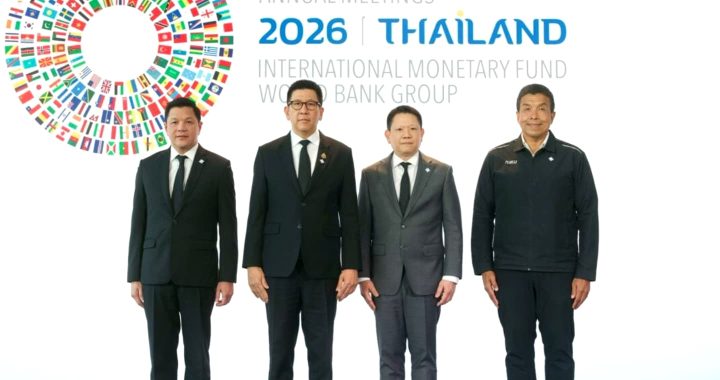BOT Governor Push Financial Institution Doing Sustainable Business for Sustain Growth.

13-8-2019—Today Bank of Thailand Governor speech at the Bangkok Sustainable Banking Forum 2019 pushing financial institution in doing sustainable businessr to prolong business sustaining growth and reduce business risk.Warning that financial institutions should not ignore the risks in the dimensions of ESG and within the organization itself.
“There should be serious sustainability considerations, including calculating the potential risk, which should start from the commitment and action of the senior management, in order to support the culture of sustainability. Practices that may start from setting goals and strategies to dealing with sustainability issues setting criteria for controlling activities that may negatively affect and expanding the scope of sustainability risk considerations “
The Bangkok Sustainable Banking Forum was first organized in 2018 to promote sustainable practices in the Thai financial sector and to emphasize the role of the financial sector in dealing with the challenges of Thai society, such as income inequality, environmental degradation, household debt problems and corruption.
Although solving problems in the dimensions of the environment, society and governance (ESG) which is an important factor for the sustainability of the Thai economy seems not be the role of financial institutions, but as a capital allocator into the economy, financial institutions can contribute to sustainability in both the economy and society in the long term.
Today, the concept of sustainability is not just about social activities or charity. The core of sustainability is taking into account the long-term business. If financial institutions are interested in just short-term profits, regardless of the impact and risk that will occur in the future from the activities of their business, it may increase the risk of undermining credibility and trust from the public towards the financial position of the business in the long run.
The events that will help this image can be seen clearer are namely;
(1) Opening an arbitrary client account of Wells Fargo Bank in 2016 from an extreme elite culture.
(2) Singapore and smog problems from smuggling of palm oil and pulp factories in Indonesia leading to responsible credit rules (Responsible Lending) to reduce the impact on the environment and
(3) Lower credit standards, due to competition for housing loans for Thai financial institutions and “change loans” that lead to over necessary loan, which although many times financial institutions avoid losses, but still undermining the trust of people.
Ignoring the sustainability issues in the ESG framework in the financial sector business may cause risks Namely (1) Credit risk arising from environmental problems such as global warming, that affects productivity and business until the borrower lacks of income, and is unable to pay the debt or social gap problems that lead to unrest situation and (2) reputation of Financial institutions are at risk, if the customer is unable to adjust the business to the social expectations.
The current consumer behavior is changing rapidly. And turned to pay more attention to sustainability If the manufacturer does not adjust the business model to meet these needs May cause a risk of not being able to repay the debt
Financial institutions should not ignore the risks in the dimensions of ESG and within the organization itself. There should be serious sustainability considerations. Including calculating the potential risk which should start from the commitment and actions of senior executives to support the corporate culture that considers sustainability practices, that may start from setting goals and strategies to dealing with sustainability issues setting criteria for controlling activities that may negatively affect and expanding the scope of sustainability risk considerations
At present, it is gratifying that Thai financial institutions are beginning to focus on compliance with the framework and consider more ESG risks. Many financial institutions have studied guidelines to assess and mitigate risks. Work process improvement and applying international sustainability standards to suit their context.
Meanwhile The Bank of Thailand and relevant regulatory agencies have created awareness, develop business potential and support the commitment to instill sustainability into the corporate culture.
Finally, the sustainability of the financial sector depends on the sustainability of the public’s trust. Everyone must remind themselves that such sustainability can happen. Only when the financial sector looked wide and far, overlooked their short-term benefits for the long term sustainability of business and society.






































